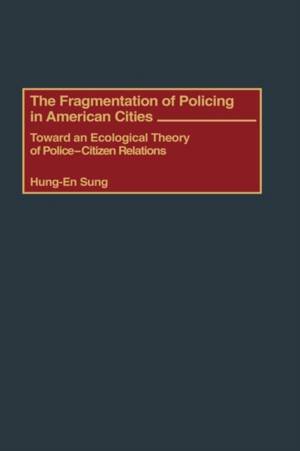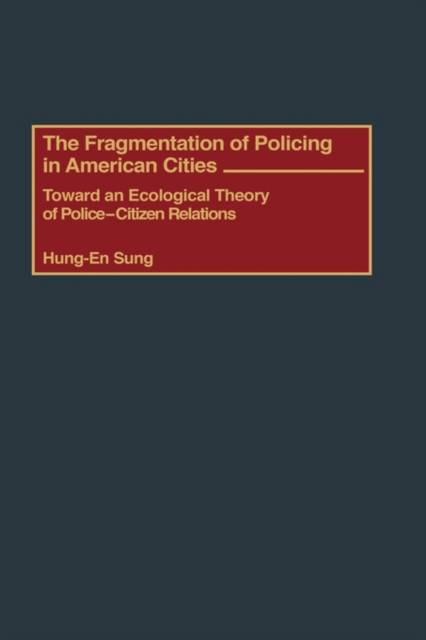
- Retrait gratuit dans votre magasin Club
- 7.000.000 titres dans notre catalogue
- Payer en toute sécurité
- Toujours un magasin près de chez vous
- Retrait gratuit dans votre magasin Club
- 7.000.000 titres dans notre catalogue
- Payer en toute sécurité
- Toujours un magasin près de chez vous
The Fragmentation of Policing in American Cities
Toward an Ecological Theory of Police-Citizen Relations
Hung-En SungDescription
The relationship between police and the communities and citizens they serve has long been a topic of study and controversy. Sung provides a place-oriented theory of policing to guide strategies for crime control and problem-oriented policing. He contends that community policing is a product of power relations among communities. Sung also explores:
-how police and citizens interact with each other in stratified and residentially segregated communities
-how services are delivered by police
-how citizens respond to those charged with protecting them and enforcing the law
Illuminating the police-neighborhood and advancing a clear hypothesis for explaining and predicting changes in police behavior, this both provides a conceptual platform for public policy debate, planning, and evaluation of police, public safety, and democratic governance.
Spécifications
Parties prenantes
- Auteur(s) :
- Editeur:
Contenu
- Nombre de pages :
- 184
- Langue:
- Anglais
- Collection :
Caractéristiques
- EAN:
- 9780275973216
- Date de parution :
- 30-11-01
- Format:
- Livre relié
- Format numérique:
- Genaaid
- Dimensions :
- 154 mm x 241 mm
- Poids :
- 458 g







